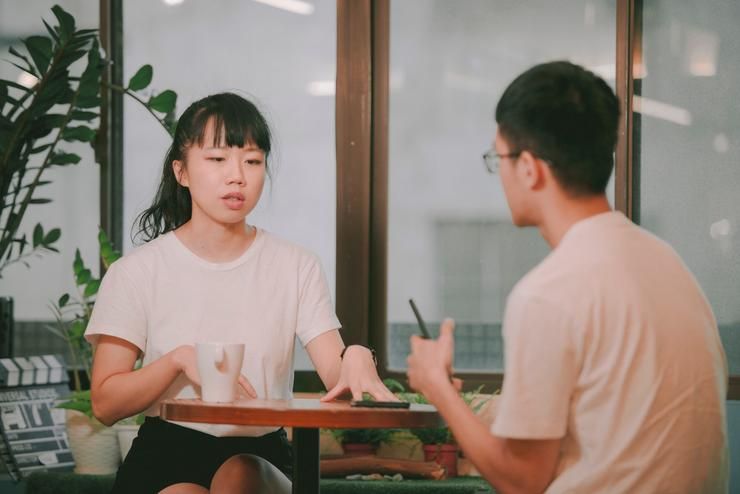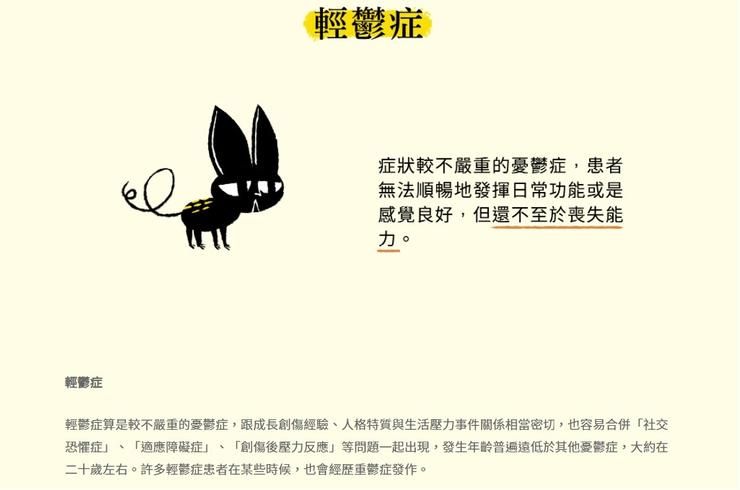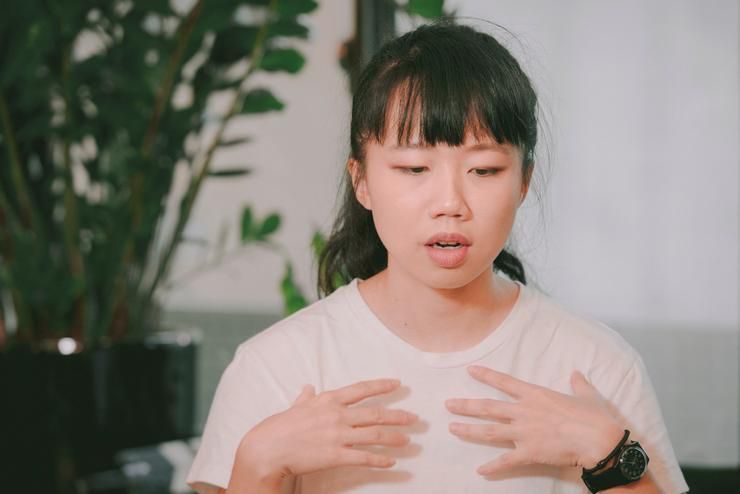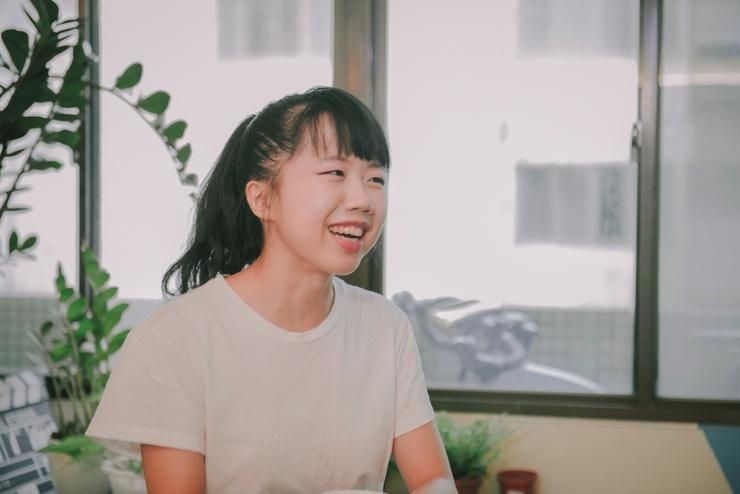
SyndAvant 凝聚願意將創意與專長應用於改造社會、推進社會進步之創意人,透過各式各樣的專案、內容與活動為社會中的種種問題找尋可能的解決方案,將公共議題帶入民眾的日常生活當中,引發改變的動機與意願。 拜訪我們:http://syndavant.com
Use information design to resolve the stigma of depression, how can "little depression" help others? (superior)

Stigma is the biggest problem in depression
"Dissatisfied", "Not optimistic", "Too weak", "Too low resistance to pressure"... Many people often put these labels on people with depression, thinking that by thinking positively, don't think too much, and be strong Can improve depression. However, various misunderstandings about depression have caused many patients, relatives and friends to miss the opportunity to seek help and delay treatment.
In the speech " There is a Depressed Monster named Xiaoyu ", Lin Yuheng, the author of "Little Depression", who is dedicated to promoting the topic of depression, gave an example: Artist Cindy committed suicide due to Internet bullying, and depression became the focus of public opinion at that time. "He actually asked for help on the Internet, but no one got the fact that he was asking for help." Yuheng said with emotion:
"There are a lot of people in this society who are suffering from depression, they need help, but they don't know it, or the people around them don't know it. People will think you're just depressed and it's not a big deal. But depression is a disease , it is a disease that needs to be solved professionally, it is not something that you can solve if you want to open it, just like you will not say to a person in a wheelchair, "you just stand up"."
The public's lack of understanding and stigmatization of depression has made many people with depression dare not ask for help, causing more personal suffering and family tragedy. According to estimates by the Ministry of Health and Welfare, at least 2 million people in Taiwan suffer from depression, but in 2018 only 400,000 people actually sought medical treatment. The disparity among them is due to the stigma of depression.
Yuheng used a murder case to explain the stigma of mental illness: "Like hearing a random murder case, the first thing people think of is that he is a mentally ill patient, and even more exaggerated is that there are community announcements prohibiting mentally ill patients from staying in. Therefore, Yuheng believes: "Stigma is the most critical problem in depression, and it needs to be solved the most, because patients with depression will hide their illness and do not want to seek medical treatment."
The effects of stigma don't stop there. Yuheng said: "Today, a person suffers from mental illness, but he is very afraid of being labelled, so he will not take action. If he does not take action, it will be more serious. After it becomes more serious, it will start to affect the people around him, and the people around him may also When you get sick, the whole society falls into a huge vicious circle.”
"If we want to solve the problem of stigma, how can we do it?" This is the question that Yu Heng has been thinking about five years ago, and he used the design profession to practice a set of experience and results, and these works have even helped Depressed due to work stress.

Because their family members have been ill for a long time, and they feel that almost one in ten people has depression, but they have been neglected and stigmatized by society for a long time. The fan page and website of "Little Depression" hopes that through the design of characters and information, people will be more aware of depression and thus improve the stigma of depression.
This completed work won the "2016 German Red Dot Communication Design Award", and more than 30,000 fans liked it, and later published a book ; and the non-profit platform "Xiaoyu Luanjin" has been in operation for about five years now, and the website has monthly There are still 50,000 to 80,000 views.
How to popularize the issue? Visualize information, characterize unfamiliar diseases, and stick to information stratification
The pictures and texts of Xiaoyu Luancheng are concise and easy to read without losing their professionalism. Yu Heng shared how they translated the difficult medical knowledge of depression so that people can absorb it more easily. First, because the knowledge of depression is not easy to read, they use the design to visualize the text information. The second is to make the "depression" that is difficult for ordinary people to talk about more easily to be discussed by the public, so they characterize the depression and make it a little monster with a cute nickname "Xiaoyu". The third is to spend six months combing relevant knowledge, and asking doctors and school psychologists to review the information to ensure the professionalism of the information.

There is also a lot of design ingenuity behind Xiaoyu's article. Yu Heng said that the reason why the standard characters choose italics is that it has a longer history than the black body and belongs to an older font, so as to echo the depression that has existed for a long time; and in the color matching, they try to reverse the depression to give people "We changed the main color to beige, and we want everyone to come to our website to be appeased and read this information with a calm mood. But we don't want everyone to ignore it, so we still use black and melancholy moods. blue."
In order to make it easier for readers to absorb the information, Xiao Yu, who has expertise in information design, joined the team. In addition to visualizing the information, he also insisted that "each article has a very clear information layer, like what you see at first sight. It must be a picture and a title." In addition, emphasis is placed and the words are big and small.

The operation of "Little Depression" has received a great response, and the supporters' silent thanks
Yu Heng mentioned that many readers thanked them for creating the character Xiaoyu when they exhibited at Biji, "Sometimes they think that depression is innate and their personality is like this. But the appearance of Xiaoyu Chaos lets them know It's an extra, he's plagued by a disease. It really cuts them off, knowing it's not their own problem."
During the three-day exhibition, what impressed Yuheng the most was a "silent" supporter. "People came and went, we kept introducing this project, one person stood silently in the corner for a long time, until after we were free, he came over wearing a mask, looking tired, he stuffed me a note, inside It was written "Thank you for being a little depression." He said weakly that he was actually a patient with severe depression. He hadn't gone out for more than a month, but he wanted to come over and say thank you to us in person, and then he Left, silently came and silently left, leaving that note. We were really shocked at the moment.”
During the speech , Yu Heng said emotionally to the camera in the synchronous live broadcast: "Assuming this supporter is still listening, I really thank you for giving us a lot of strength to continue to do this project."
"After we did this project, we knew that many myths and prejudices about depression would make many people with depression unable to admit it or tell the people next to them about it. But the role of Xiaoyu seems to be It really helped some people."

After graduation, he was hit by setbacks and found that he had been invaded by Xiaoyu.
Biji won the German Red Dot Design Award, and more than 30,000 followers on the fan page. They were also invited to publish books and give speeches, which seemed to be a complete success. But after graduating, Yu Heng suffered from the failure to apply for a public scholarship and a lovelorn. He was in a period of confusion. He decided to fill himself up. After studying in the graduate school, he continued to work, writing books on holidays, and handling information from fans when he was on a ride. There is absolutely no time to rest.
During this "very crashing year", Yuheng suffered from depression. At first, Yu Heng thought that he was just at a low ebb, and that as long as he worked hard or got through it, he would get better. "Until my roommate told me, 'You might need some help'. I went back and looked at what I was doing, like looking at the difference between depression and depression ." Yuheng recalled:
"Actually, there was an obvious difference at that time, that is, I fell into a very pessimistic and depressed state, and the friends next to me couldn't understand why I was so pessimistic, and they would say, 'I really don't understand why you have to force yourself into it. That? You're doing really well now, why do you feel like you're useless?' I lost my sense of self-worth at that time."
"Looking back on it now, when Xiaoyu messed into you, it was like your face was covered, and you couldn't see a way out." Yu Heng said, at that time, he was also accompanied by a decline in his thinking and concentration, and he was completely unable to make decisions. , a high degree of guilt, etc. At that time, he also took the depression scale with a full score of 27 points on his website, and the score jumped from one or two points before to the 20th point that belongs to the high risk of depression.

Learn to take care of yourself and avoid becoming a high-risk group for depression
"After reading my article once, I felt that I needed help." Yu Heng said, "At that time, I tried to convince myself to ask for help, but it was really difficult. As I am saying here now: If you feel that you need help, just ask for help. Going to the doctor. But when I was on my own, I couldn't even talk to others about it or go to the clinic."
Later, he tried to accept the fact that he was sick, plucked up the courage to ask for leave, suspended work, did not make major decisions, and went to the psychiatrist. "Because of a friend's reminder, I found out very early. It took about a month to get the effect. The things that I couldn't think of before will be opened as soon as I think about it." Yu Heng added his recovery method: "Just follow the article I wrote. , Pause things and have a good rest. I've been really tired for too long. In addition, I didn't exercise because I was too busy, so I started running and returned to my normal life. "
Since she was a high-risk group for depression— workaholics and perfectionists, in order to avoid the recurrence of depression, Yuheng adjusted her work style significantly. "My biggest change is that messages won't come back right away, and if I don't work on holidays, I won't work. Then there will definitely be leisure activities. I will meet friends or exercise, and I will also arrange travel plans." Yuheng said: "I Still a perfectionist, but I will draw out the exit so that negative emotions can be resolved.”
Yuheng believes that finding one's own bottom line and a comfortable work style, and taking care of one's own feelings in a timely manner is a necessary knowledge of health education and the prevention of depression in a Taiwanese society where high pressure, high working hours, and easy enslavement are common. way . Yuheng explained:
"Taiwan's education and the whole atmosphere is that we always think about others, and the most common thing we say is embarrassment - I can't express what I mean, it's a bad thing when I want to express what I mean. Taking care of yourself is not taken seriously in Taiwanese society, so you really need to learn.”
"What Xiaoyu Chaoshen is doing is to change the social atmosphere." Although it is not enough to completely eliminate the stigma of depression, the monthly views of Xiaoyu Chaos, which are viewed by tens of thousands of people, may indeed reverse many people's perception of depression. The awareness of depression has gradually become a topic that can be discussed, and more people who suffer from depression can be detected and accepted as soon as possible.

SyndAvant brings together creative people who are willing to apply their creativity and expertise to transform and advance society. We call them Avantists. This series of interviews will show you how these Avantists manage their professions, use their talents and influence, and then form a positive influence on society.
Editor: You Jiaquan Photography: Achó
Checked by: Wang Yu
Like my work?
Don't forget to support or like, so I know you are with me..
Comment…